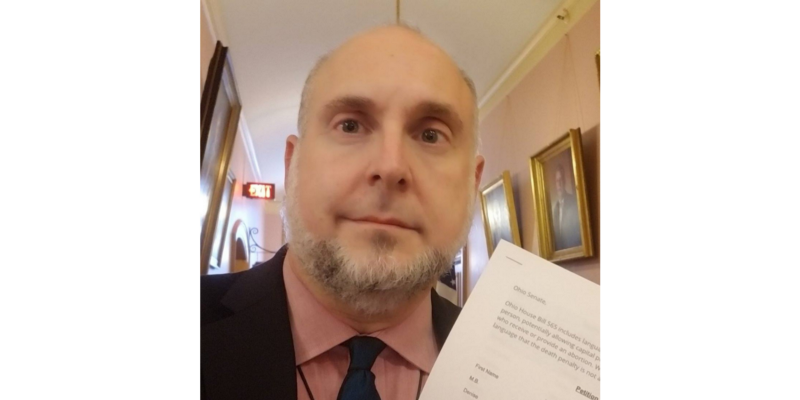 Abraham Bonowitz of Death Penalty Action. Photo Credit: Abraham Bonowitz
Abraham Bonowitz of Death Penalty Action. Photo Credit: Abraham Bonowitz
Abraham J. Bonowitz has been one of the leading organizers in the death penalty abolition movement since he changed his mind on the issue in the late 1980s. Throughout his career, he has had a hand in each of the legislative repeal victories thus far, starting with when he served as the Field Manager for New Jerseyans for Alternatives to the Death Penalty, which passed its bill in 2007. He then worked as the Director of Affiliate Support for the National Coalition to Abolish the Death Penalty and was directly involved in the repeal victories in New Mexico, Illinois, and Maryland, and to a lesser extent in Connecticut, New Hampshire, Colorado, Virginia, and Nebraska (since reversed via referendum). Today, as Co-Founder and Executive Director of Death Penalty Action, Abe leads the organization’s multi-state strategy combining organizing, direct action, and digital tactics to grow the movement to abolish the death penalty.
We chatted with Abe over Zoom to hear about his journey to becoming a leader of the death penalty abolition movement, the movement’s progress so far, and the crucial work that lies ahead.
JEFF: Would you tell us about your role at Death Penalty Action?
ABRAHAM: I’m the Co-Founder and Executive Director of Death Penalty Action. I have been doing this work for over 30 years now, at some level or another, although Death Penalty Action is one of the newest organizations in the anti-death movement. We started it in 2017.
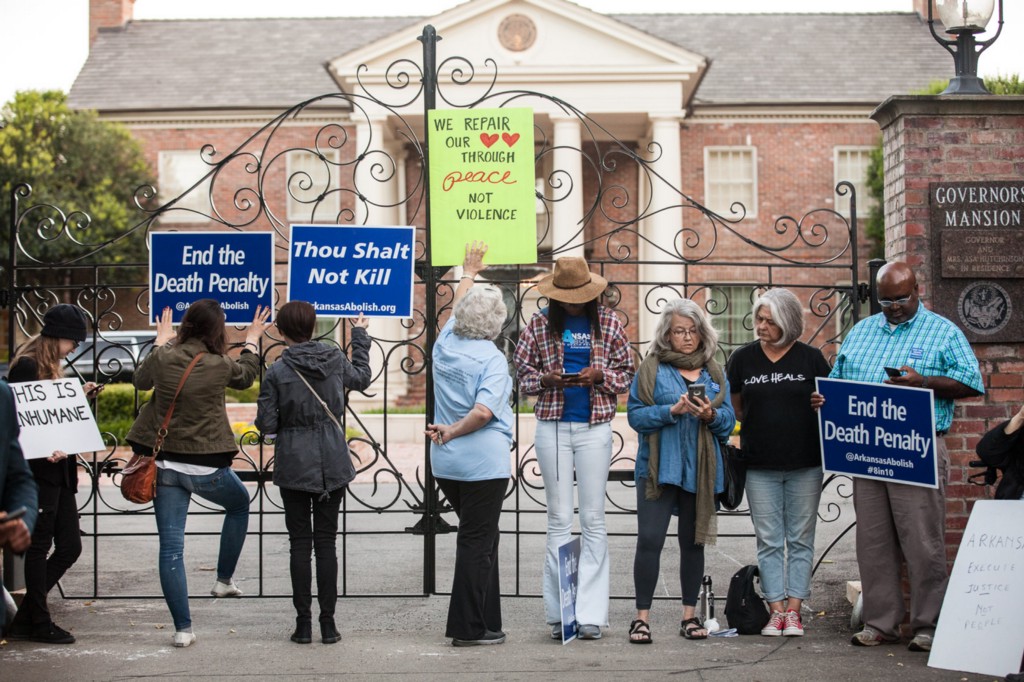
How did you get started doing this work?
I found myself in a meeting of a group called Amnesty International on the campus of Ohio State University [in the 1980s]. I was surprised when I got there and they’re talking about the death penalty. I argued with the speaker. I said, “An eye for an eye, this is the United States. We have the best justice system in the world. If that includes the death penalty, fine with me, I’ll pull the switch myself.”
I set out to try to prove those people wrong, because I wanted to be right. And I found out that everything I believed about the death penalty, the truth was the opposite.
“I came to really understand the collateral damage of the death penalty and how it creates more victims on all sides of the issue and prolongs the pain of victim families. The facts changed my head, and the journey changed my heart.”
I thought we had a system that was fair, that treated people equally. The thing that changed my mind was learning that you have to kill in a county that can afford a death penalty trial. For me, it was learning that what matters more than the severity of a crime is the geography and the politics of who’s the District Attorney, as well as race and how much money a person has to defend him or herself. That made me jump from one side of the fence to the other.
Then I got involved with a group called Murder Victims’ Families For Reconciliation, which at that time had a project called the Journey of Hope… from Violence to Healing. That group is led by murder victim family members who say, “No amount of killing is going to equal the value of my loved one. And I don’t want to be a part of making somebody else’s mother experience the pain that I’ve come to know from my loved one being killed.”
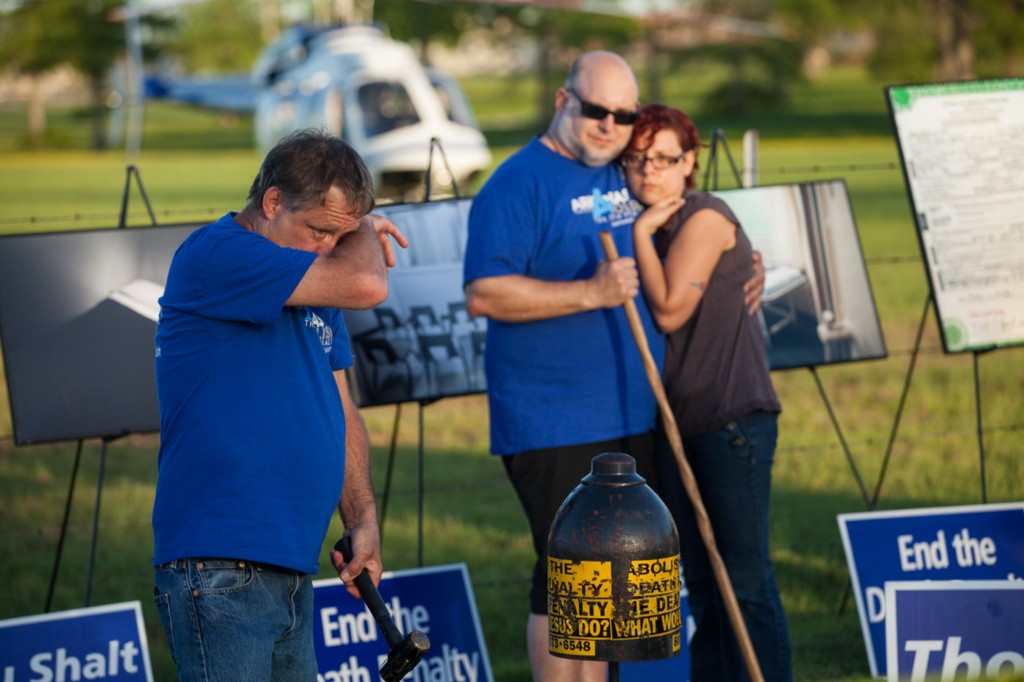
That’s when I came to really understand the collateral damage of the death penalty and how it creates more victims on all sides of the issue and prolongs the pain of victim families. The facts changed my head, and the journey changed my heart.
How is Death Penalty Action working to abolish the death penalty in the United States?
Death Penalty Action provides high visibility resources, leadership, support, educational and direct action events and activities within the broader death penalty abolition movement. We assist various local, state, and national groups in their work to end the use of the death penalty.
So right now (June, 2021), for example, we’re using Action Network to manage our work with folks in South Carolina to establish a new state anti-death penalty group, South Carolinians for Alternatives to the Death Penalty. It’s been a decade since the last execution there, and the people who were running a group there no longer had the capacity to do it. Last month, the General Assembly passed a bill that adds the firing squad as an option, and forces condemned prisoners to choose between being shot to death or fried in the electric chair. This is because the state can’t legally get the drugs to carry out lethal injections. Within a few weeks of that bill passing and being signed in May, two execution dates were set, and there was no state anti-death penalty group ready to lead. A high schooler took it upon himself to organize a rally, and we heard about it and supported his efforts. The next thing we know, we’re asked to help create a new entity. And so, we did!
That’s just one example. Death Penalty Action fills the gaps. We were created in the wake of Donald Trump’s inauguration, because we could see that it was only a matter of time before federal executions started up again. In the last six months of his term in office, Trump became the most-executing president since FDR, and Death Penalty Action mobilized the protests. Because of COVID we really had to find ways for people to take action and stay safe, and that’s where the toolset from Action Network really made the difference. Our list grew from 20,000 people in July last year to over 600,000 activists by the time the Trump execution spree was finished on January 16th.
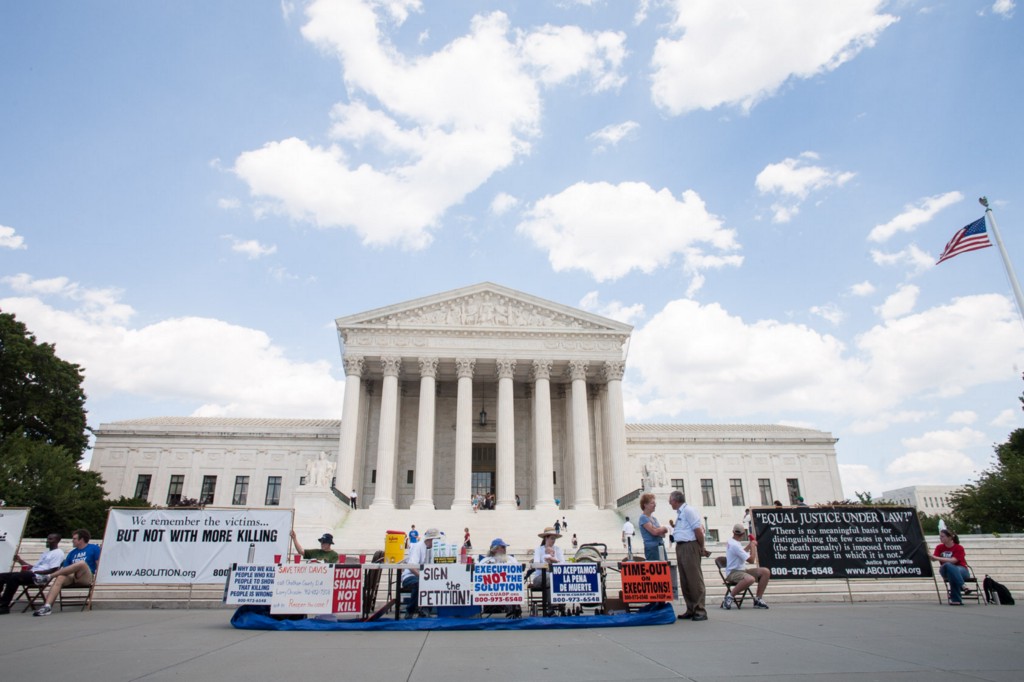
We also stage symbolic protest actions around key anniversary dates. Coming up later this month, we’ll be running the 28th annual Starvin’ for Justice: Fast & Vigil to Abolish the Death Penalty at the U.S. Supreme Court, which takes place on the sidewalk in front of the U.S. Supreme Court. Last year we stripped down the in-person presence and created virtual programming because of COVID, and this year is still limited, but anyone who wants to come is welcome. June 29th is the anniversary of the date in 1972 when the U.S. Supreme Court struck down all the death penalty laws and ruled that it was arbitrary and capricious. Any state that wanted to have a death had to write new laws. Many did, and those new laws were upheld on July 2, 1976. So we do this symbolic protest every year from June 29th to July 2nd.
We also do behind the scenes organizing and support different kinds of campaigns that are working to pass legislation. We’re working right now to support a legislative repeal effort in Ohio, and repeal bills passed in one house this year in Wyoming and Nevada before stalling on the other side.
“We’re asking everyone to sign our ‘Abolish & Demolish’ petition to President Biden. He has the power to send a strong signal to Congress by commuting the death sentences of all 46 men on the federal death row.”
We did win in Virginia! That was our first real test of how Action Network can help mobilize people to create these wins. Because of the massive influx of new members during the federal executions, we now have a tangible asset we can use to benefit our state partners in this work. We ended up with over 12,000 Virginians on our list, and more than half opened our e-mails and sent messages to their Assembly members and Senators in Virginia. That helped make Virginia the 23rd state to abandon the death penalty, and the first of the former confederate states to do so.
We’ve now had eight states legislatively abolish the death penalty. In New York, Washington state, and Delaware the courts have thrown it out, and twelve states have never had it.
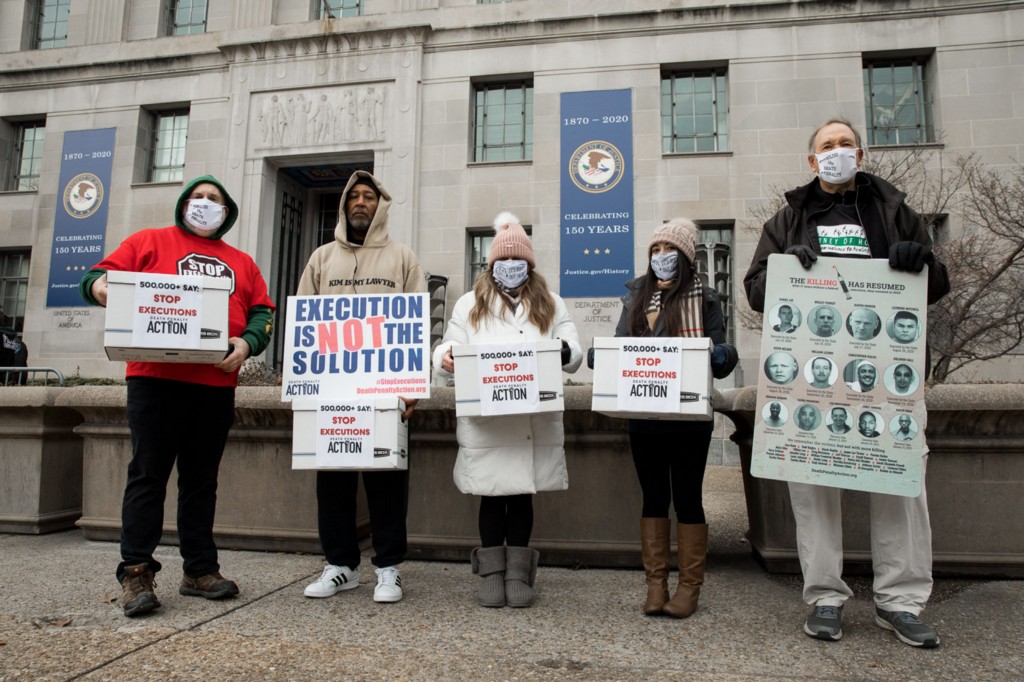
How have you incorporated digital tactics into your campaigning work, alongside direct action and organizing?
We make sure that there is a petition on every single execution that’s scheduled in the states, and this is important now that states are firing up their killing machines again as we emerge from the pandemic. Probably 90 or 95% of the people on our list have organically come to us came through a petition. As I noted earlier, by the time we got to the end of the Trump execution spree, our list had grown to over 600,000. That’s how we got to where we’re at today. It was great to have a tool like Action Network.
What’s the best way for people to get involved in this work?
I’m glad you asked. Our movement is prioritizing a two-pronged approach with the federal death penalty. First, we’re asking everyone to sign our “Abolish & Demolish” petition to President Biden. He has the power to send a strong signal to Congress by commuting the death sentences of all 46 men on the federal death row. We also want him to order that the death house at the federal prison in Terre Haute be bulldozed. I really want to be there when that happens.
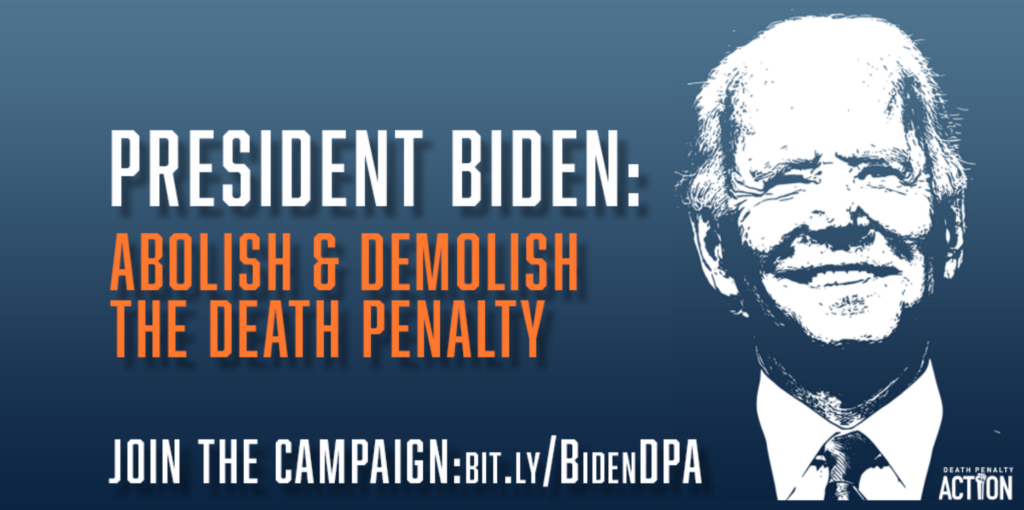
The other thing that everyone needs to do is write their Members of Congress in support of the Federal Death Penalty Prohibition Act of 2021, sponsored by Ayanna Presley in the House and Richard Durbin in the Senate. We are the organization that’s leading the campaign to get that bill passed. We’re inviting anyone and everyone to collaborate with us and to urge their own constituents to communicate with their representatives in Congress, and we’re using Action Network to do that initial connection. We welcome people to use our tool or their own, just as long as they do it.
Visit deathpenaltyaction.org, and right there on the front page you can send a letter to your Members of Congress. And also throughout our federal abolitionist toolkit, there’s a whole list of things for people to do. If you do nothing else, make sure you communicate with your Member of Congress and your two state Senators.
Write to Congress here: https://actionnetwork.org/letters/congress-abolish-the-federal-military-death-penalty
All the normal campaign things raise awareness and demonstrate momentum and desire of the public to see this happen. We know that there’s about 60% of the public now if you give them the option of death penalty or the alternative of life without parole, they choose the alternative.